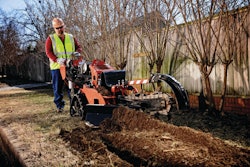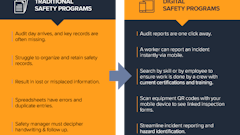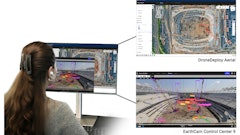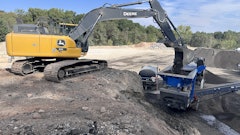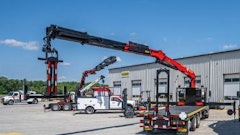In less than five weeks, just 33 days from now, the federal Highway Trust Fund will expire and approach default without action from Congress that includes additional funding.
Appointed and elected officials in Washington, D.C., are working on a new federal surface transportation authorization, which is needed by May 31. “Whether it’s the gas tax or other funding sources, all options should be on the table,” says Paul Yarossi, PE, president, HNTB Holdings Ltd. “Investing in our infrastructure provides clear economic and environmental benefits."
A new America THINKS survey from HNTB Corporation finds most Americans agree that funding infrastructure improvements – investing in the long-term health of the nation’s roads, bridges and railways – could help spur the economy as well as encourage the development of thousands of construction jobs.
“Our nation was built on transportation,” said Yarossi. “It drives job creation, spurs supply chains and gets goods to market.”
In fact, 4 in 5 (80%) Americans would shell out money for infrastructure improvements if those dollars went directly toward creating thousands of jobs in the United States. They would be willing to put an average of $11 each month toward the cause. Nearly 1 in 4 (22%) would spend more than $20 a month to make it happen.
Despite the slow and steady progress the U.S. unemployment rate has made the last few years, Yarossi said the country still could use a big economic boost. “Safe and secure transportation pays us back well in excess of every dollar we invest in it,” he said.
According to the Federal Highway Administration, from 1950 to 1990 highways provided a 32% rate of return, while Moody’s estimates every additional dollar spent on infrastructure generates a $1.44 increase in gross domestic product.
Many Americans would specifically invest their own money to create construction jobs. Three-quarters (75%) of the nation would be willing to pay $2.50 per week to put 400,000 Americans to work in full-time construction jobs with benefits.
In fact, that’s what could happen.
The federal gas tax has been the primary funding mechanism to generate user fees for the nation’s road and bridge network for nearly 60 years, but at 18.4 cents per gallon, it hasn’t been raised since 1993 and can’t keep up with current infrastructure demands, inflation or rising construction costs. The American Road & Transportation Builders Association (ARTBA) recently proposed a 15-cents-per-gallon gas tax increase, which could be partially offset by a $90 annual tax rebate to middle and lower income tax filers.
Every penny added to the gas tax would cost the average driver — traveling 20,000 miles a year and getting 20 mpg — about $10 a year, and would support or create more than 13,860 jobs in the transportation construction sector.
“These jobs are quality jobs, the kind of meaningful employment men like my grandfather’s generation found when they came to America looking for opportunity,” Yarossi says. “Even today, you can walk onto a construction site as a laborer and walk out as an equipment operator.”
More than 9 in 10 (93%) Americans agree that it’s important for the United States to create construction jobs. Nearly half (48%) of the nation believes this is extremely crucial.
Close to 3 in 5 (58%) Americans think the nation investing in transportation infrastructure would have a direct impact on creating good construction jobs. Other benefits seen include increased safety (57%), a boost in local economies (48%) and improved mobility (43%).
Recent history shows people are willing to pay for infrastructure when they see what they will get. Last November, 67% of ballot measures to increase or extend funding for highways, bridges and transit passed across the country.







